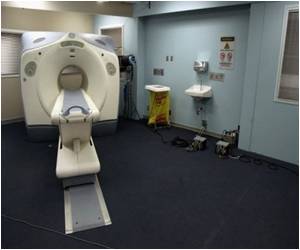Highlights
- Two patients with the same cancer diagnosis can respond very differently to the same treatment.
- Metabolism of the common gut bacteria decides the sensitivity and effectiveness of common chemotherapy drugs for treating cancer.
- This increases the opportunity to test many combinations of drugs and bacteria for treating many cancers.
"Two twins, genetically identical, who have colorectal cancer could potentially respond very differently to the same treatment because of their microbiome," said Dr. Walhout, PhD, the Maroun Semaan Chair in Biomedical Research, co-director of the Program in Systems Biology and professor of molecular medicine at UMMS.
"If we can learn how bacteria affect the efficacy or toxicity of chemotherapies, it's not hard to imagine developing personalized medicine built on probiotics that could improve the clinical benefits of some cancer treatments." Dr. Walhout added.
Study in Worms
The model of C. elegans, a transparent, microscopic worm often used in genetic studies, was used to determine how different bacteria might augment or depress cancer drugs.
Worms that were fed a diet of E. coli were much more sensitive to FUDR than worms fed Comamonas.
It was found that worms fed the Comamonas diet had to be exposed to a higher concentration of FUDR to induce sterility.
"Because these are bacteria already in your microbiome," said Aurian Garcia Gonzalez, a MD/PhD candidate in the Walhout lab, "any pill or treatment you take orally would be exposed to the bacteria and the efficacy of the drug may be modulated by different bacteria."
To determine which bacterial genes are responsible for increasing or decreasing drug efficiency in C. elegans, genetic screens were done.
This revealed the molecular mechanisms responsible for improved FUDR treatment by identifying bacterial mutants that improved or diminished drug potency in the worm.
"This isn't a model that indisputably demonstrates a therapeutic finding but the implications are quite interesting nonetheless," said Walhout. "Using the humble worm and powerful genetic tools, we can potentially use probiotics to develop a personalized medicine that might maximize the benefit of some chemotherapy treatments.
"Any bacteria that can be fed to a worm can be tested and any drug that has an observed phenotype can be tested," explained Walhout. "This gives scientists a huge space to test because of the thousands of combinations of drugs and bacteria that could conceivably be tested. "We hope this study inspires more people to look at this space, and explore the use of our findings to clinical settings in the future."
The study is published in Cell.
Reference
- Marian Walhout et al. Bacterial Metabolism Affects the C. elegans Response to Cancer Chemotherapeutics. Cell; (2017) DOI: 10.1016/j.cell.2017.03.046
Source-Medindia















